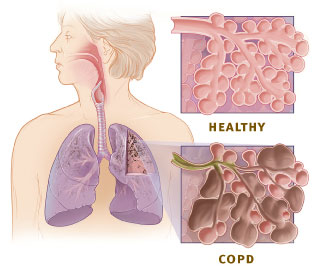Acute Coronary Events like heart attacks more often observed in winter seasons, when flu is common than any other seasons.
Evidence is mounting on the association of influenza and heart attacks in the recent years; and vaccination against influenza in elderly population reduces the incidences of heart attack.| Influenza virus (Photo credit: Sanofi Pasteur) |
In a case-control study performed in Australia from 2008 to 2010, published online on 21. 08.2013 in the Heart, it has been concluded that though influenza infection can not be a single predictor of AMI; vaccination against influenza is effective in reducing AMI in about 45% in a population.
Undiagnosed influenza was detected in about 10% AMI patients admitted to the hospital.
In some other studies it has been found that the preventive effect of vaccine on recurrent heart attack may be to the tune of 67%.
The exact cause, how influenza might increase the risk of inflammation in coronary arteries leading to atherosclerosis~plaque rapture~thrombosis~blockade and infarction of heart muscle, and how vaccination can prevent AMI is not known.
However, it is postulated that Influenza may affect the vascular system in multiple ways. Influenza is associated with a greatly increased number of pro-inflammatory, pro-thrombotic cytokines, and it causes endothelial dysfunction, increased plasma viscosity, tachycardia, and release of endogenous catecholamines.
Clinical flu is also associated with psychological distress, dehydration leading to hypotension, and hemoconcentration, hypoxaemia, and demand ischemia.
Van Lenten and co-workers have shown that influenza decreases the anti-inflammatory properties of high-density lipoprotein cholesterol particles and increases entry of macrophages into the arterial wall.
Influenza infection also has extensive and profound pro-coagulant effects.
Viremia after influenza and extra-pulmonary seeding of the virus are considered to be rare; however, a direct infection of the atherosclerotic plaques and chronic plaque infection cannot be ruled out. Whether or the virus infects the plaque or not, influenza may induce an antigenic cross-reactivity, which may result in enhanced immune response against plaque antigens.
So, it may be wise to vaccinate the aged and population at risk, particularly those above 50 years old with influenza and pneumococcal vaccine.
...
Click here to Subscribe news feed from "Clinicianonnet; so that you do not miss out anything that can be valuable to you !!
...






